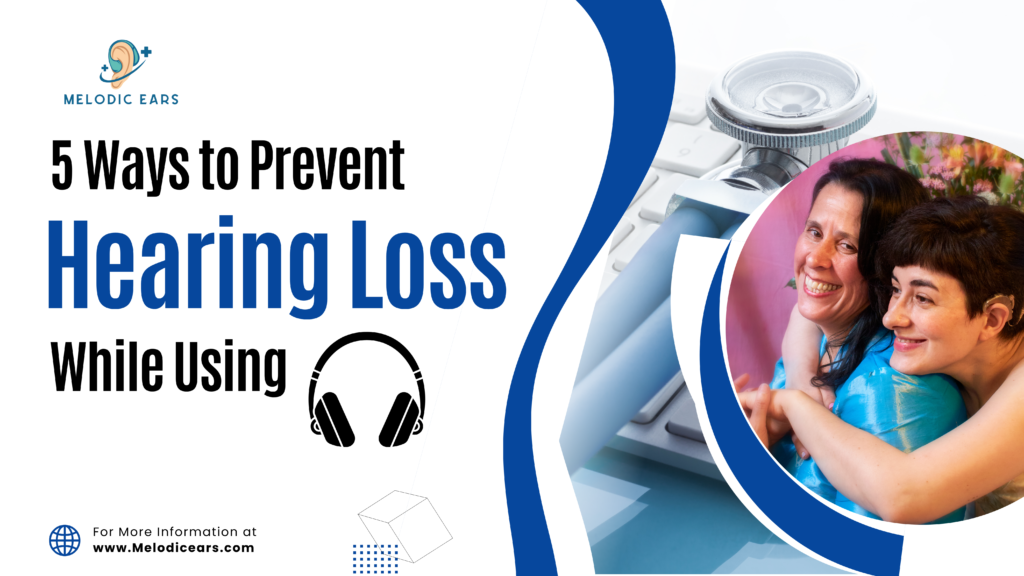Hearing Loss in Seniors: Early Signs Families Shouldn’t Ignore

A father’s laughter, a mother’s bedtime story, or a grandparent’s advice — these are priceless moments that shape family bonds. Sadly, for many elderly loved ones, hearing loss in seniors slowly steals away these sounds, often without being noticed.
According to studies, nearly 1 in 3 adults over the age of 65 experiences age-related hearing loss (presbycusis). Families often miss the early warning signs, assuming it’s just “old age.”
This blog will help you understand:
- The early signs of hearing loss in seniors
- The most common causes of hearing loss in elderly
- Treatment options including the best hearing aids for seniors in India
- Why a free hearing test can make all the difference
Early Signs of Hearing Loss in Seniors
Spotting the problem early can prevent years of isolation. Watch for these symptoms of hearing loss in elderly loved ones:
- Frequently asking “What?” or “Can you repeat that?”
- Turning up the TV or radio volume too high
- Struggling to follow conversations in noisy places (restaurants, family gatherings)
- Avoiding phone calls or group talks to hide the difficulty
- Responding incorrectly due to mishearing
- Complaining that voices sound muffled or unclear
- Withdrawing socially, which can lead to depression or even dementia
🧠 Insight: Untreated hearing loss in seniors is strongly linked to cognitive decline and memory issues.
What Causes Hearing Loss in the Elderly?
The most common cause of hearing loss in seniors is presbycusis, a gradual, age-related change in the inner ear. Other causes include:
- Long-term noise exposure (machinery, loud music)
- Ear infections or untreated medical issues
- Genetic factors
- Ototoxic medications (drugs that damage the inner ear)
- Health conditions like diabetes, hypertension, or cardiovascular disease
How Do You Treat Old Age Hearing Loss?
While age-related hearing loss cannot be reversed, it can be treated effectively:
- Hearing Aids – Modern digital hearing aids are discreet, rechargeable, and even connect via Bluetooth to smartphones.
- Cochlear Implants – For severe hearing loss cases where hearing aids don’t help.
- Lifestyle Support – Avoiding noisy environments, managing health issues, and doing regular free hearing tests to monitor hearing health.
Why Early Detection Matters
Ignoring hearing loss in old age can lead to:
- Memory decline and dementia
- Higher risk of accidents due to missed sounds
- Social isolation and depression
- Strained family relationships
Getting a free hearing test for seniors is one of the easiest ways to detect problems early and improve quality of life.
Best Hearing Aid Solutions in India
At Melodic Ears, we provide:
- Free Hearing Tests – Quick, painless, and available across India
- Best Digital Hearing Aids for Seniors – From leading brands like Phonak, Widex, Resound, Signia & Starkey
- Affordable Pricing Options – Flexible plans to fit every budget
- Compassionate Support – Personal guidance for seniors and their families
💬 “Every conversation is a memory worth keeping — don’t let hearing loss take it away.”
Frequently Asked Questions (FAQs)
1. What is the most common cause of hearing loss in the elderly?
The most common cause is presbycusis, an age-related gradual damage to inner ear cells and auditory nerves.
2. How do you treat old age hearing loss?
It is usually treated with digital hearing aids, cochlear implants (for severe cases), and lifestyle support. Regular free hearing tests help track changes.
3. Can hearing loss be restored?
Most age-related hearing loss cannot be reversed, but hearing aids and implants can restore communication and quality of life.
4. What causes people to lose their hearing?
Common causes include aging, prolonged noise exposure, infections, genetics, certain medications, and health conditions like diabetes or hypertension.
5. Can old age hearing loss get worse if untreated?
Yes. Untreated hearing loss in seniors can worsen over time and is linked to dementia, depression, and social withdrawal.


